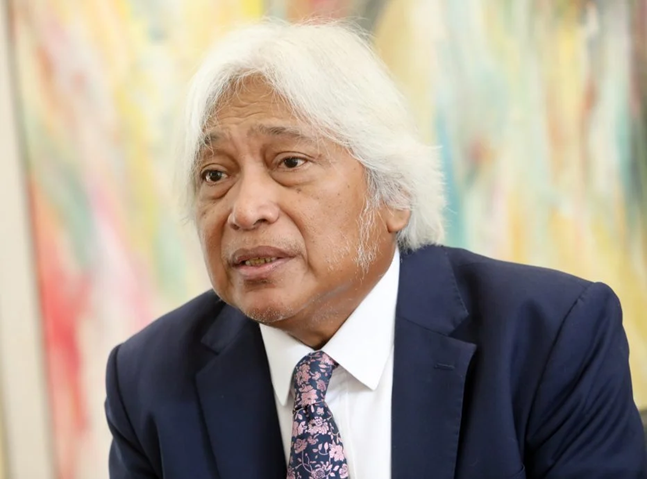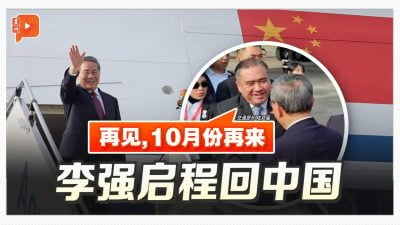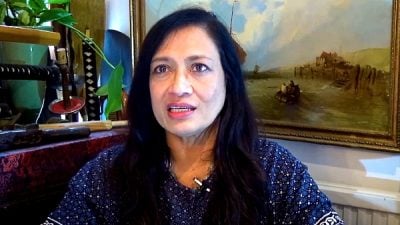
KUALA LUMPUR: The new tariff policy introduced by the United States serves as wake-up call for Malaysia to carry out structural economic reform, says former Bank Negara Governor Tan Sri Muhammad Ibrahim.
Trade partners and industries in Malaysia should be more diversified and set up a “defensive mechanism” early to respond to external impacts that may hinder the economic growth of Malaysia, he urged.
“If Malaysia does not seize the opportunity this time to implement economic transformation, the situation will turn worse,’’ he said.
“Imagine if we are a country with a stronger domestic industry and a larger domestic demand and if we have a broader and more diversified group of trade partners – then the newly announced US tariff policy will not have such a severe impact although it may still affect us,” he said.
In an exclusive interview with Sin Chew Daily, Muhammad called on the government to set up a defensive mechanism in advance to cope with external impact which may hinder economic growth.
He emphasised that the economic resilience over the past few decades has largely been due to a relatively diversified economic structure. However, with the evolving US-China trade dynamics, all countries must avoid overreliance on any single industry or market.
“We cannot let any one industry dominate our economy – for example, we can’t just focus on the semiconductor industry. We must also actively develop services such as tourism, medical tourism, and other domestic service-based sectors, while also finding ways to increase domestic consumption, he said.
He said that a diversified economic structure is more capable of withstanding and responding to any external negative impact, and can help ensure that national trade policies are not constrained by a specific industry.
“If our domestic economy is strong enough, it can act as a ‘buffer’ when exports are hit.”
“These two aspects must complement each other. If the domestic economy is weak, exports can balance it; if exports are impacted, the domestic economy can absorb some of the impact. In addition, Malaysia is actively exploring new export markets and diversify trade partners will become even more critical.
“The BRICS nations, South America, and Africa – these non-traditional markets that can serve as new growth points,” he said.
Developing a stronger domestic industrial system
He added that if Malaysia can develop a stronger domestic industrial system and a more diversified export market, the impact of US tariffs – while still present – would be greatly reduced.
“I believe this is the direction Malaysia and ASEAN should take. This is a long-term issue.”
According to a report from the Malaysia External Trade Development Corporation (MATRADE), The main trading partners of Malaysia in 2024 are ASEAN, China, United States, European Union, and Taiwan, which collectively account for 68.4% of total trade volume of Malaysia.
Over-dependence on foreign labour a fatal weakness
Reflecting on the severe financial crisis of 1997–1998, Muhammad said Malaysia implemented many foundational reforms at that time, including strengthening the financial services sector, re-evaluating its economic operations, and promoting export-oriented policies.
“The US tariff crisis today is an opportunity. I don’t see it as a full-blown crisis – it’s more like a ‘mini crisis’ – but sufficient to trigger economic transformation in Malaysia.”
This transformation includes reconsidering the over-dependence on foreign labour. He believes that long-term over-dependence on foreign workers is one of the fatal weaknesses of the Malaysian economy.
“Our dependence on cheap labour has hindered the development of high value-added industries. Businesses are unwilling to automate, adopt new technologies, or transition to high value-added sectors. This has suppressed wages for the B40 income group.
“When the B40’s income is suppressed, the wealth gap between them and other groups widens – which is detrimental and also dampens domestic demand, “ he said.
Muhammad called on the government to establish a transparent and clear plan for the economic structure of Malaysia to gradually reduce its dependency on foreign labour.
US direction is uncertain for next four years
Muhammad predicted that in the next four years, the US will continue to implement unpredictable and erratic policies. He said this is almost expected, judging by the first 100 days of the Trump administration.
He noted that in the long run, retaliatory tariffs and trade wars triggered by tariff policies benefit no country. This is because the world today is highly globalised, and supply chains are deeply interconnected – any retaliatory action will not yield positive outcomes.
“We must face the reality that the trade system today is built on cross-economy supply chains. No single economy can operate independently. We are all interdependent, which is very different from the past, “ he said.
ASEAN cooperation a key strategic move
In light of this, he believes that Malaysia must work closely with ASEAN countries to coordinate and align policy responses. On this basis, further efforts should be made to strengthen economic integration within ASEAN.
“We cannot predict how future US presidents or American foreign policy will evolve. Therefore, we must build our internal resilience – both domestically and as a region.”
It’s important to note that given the different levels of economic development and political systems in Southeast Asia, the impact of the US-China trade war varies from country to country, and it won’t be easy for ASEAN to respond collectively.
“We are indeed facing a very unique situation. In fact, we have never truly faced this kind of challenge before,” said Muhammad.
He stressed that this is the time for top ASEAN leaders to demonstrate leadership, urging ASEAN countries not to act in isolation.
“For ASEAN, the best approach is unity. Responding and coordinating as a whole will yield more effective and positive outcomes than individual actions,” he said.
ADVERTISEMENT
ADVERTISEMENT








































